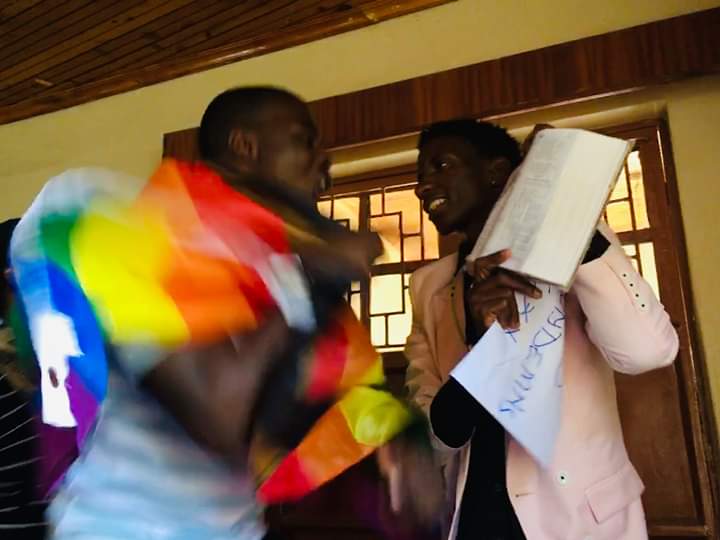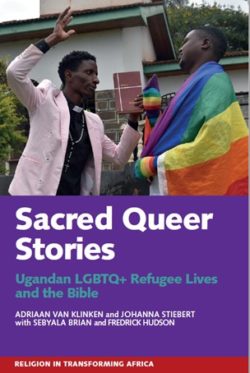Sacred Queer Stories at Es’kia Colloquium, Wits University

The Sacred Queer Stories project and book will be presented and discussed at the 6th Annual Es’kia Colloquium, taking place 15-16 September 2022 at Wits University, and organised by Prof. Grace A. Musila.
The theme of the Colloquium is "Epistemes, Methods, Textualities". The Sacred Queer Stories project will be presented under the title "Epistemes, Methods and (Inter)textualities in Sacred Queer Stories". This session is scheduled for Thursday 15 September, 14h00-15h30 (South Africa time).
The panel consists of the following discussants:
- Stella Nyanzi, PEN writer in exile scholar, Germany
- Megan Robertson, University of the Western Cape, South Africa
- Sebyala Brian and Fredrick Hudson, The Nature Network, Nairobi/USA
- Adriaan van Klinken, University of Leeds, UK
In order to attend the session online (Zoom), please register for the Colloquium via this link.
The Es’kia Colloquium takes place annually at Wits University and is in memory of Es’kia Mphahlele, celebrated writer who had a life-long dedication to advancing cultural and educational projects.
The panel discusses questions regarding knowledge production, method and (inter)textualities in relation to the recently published book, Sacred Queer Stories: Ugandan LGBTQ+ Refugee Lives and the Bible, co-authored by Adriaan van Klinken and Johanna Stiebert with Brian Sebyala and Fredrick Hudson (James Currey, 2021).

Presenting the moving personal life stories of Ugandan LGBTQ+ refugees in Nairobi, Kenya alongside an analysis of the process in which they creatively engaged with two Bible stories – Daniel in the Lions' Den (Old Testament) and Jesus and the Woman Caught in Adultery (New Testament) – the book explores how readings of biblical stories can reveal their experiences of struggle, their hopes for the future, and their faith in God and humanity. Arguing that the telling of life-stories of marginalised people, such as of Ugandan LGBTQ+ refugees, affirms embodied existence and agency, is socially and politically empowering, and enables human solidarity, the book also shows how the Bible as an authoritative religious text and popular cultural archive in Africa is often used against LGBTQ+ people but can be reclaimed as a site of meaning, healing, and empowerment.
The result of coproduction between UK-based academics and a Nairobi-based community of Ugandan LGBTQ+ refugees (The Nature Network), the panellists will give an account of, and reflect critically on, this book, the methodological, epistemological, and political questions it raises, and its contributions to African queer studies and queer religion studies.
